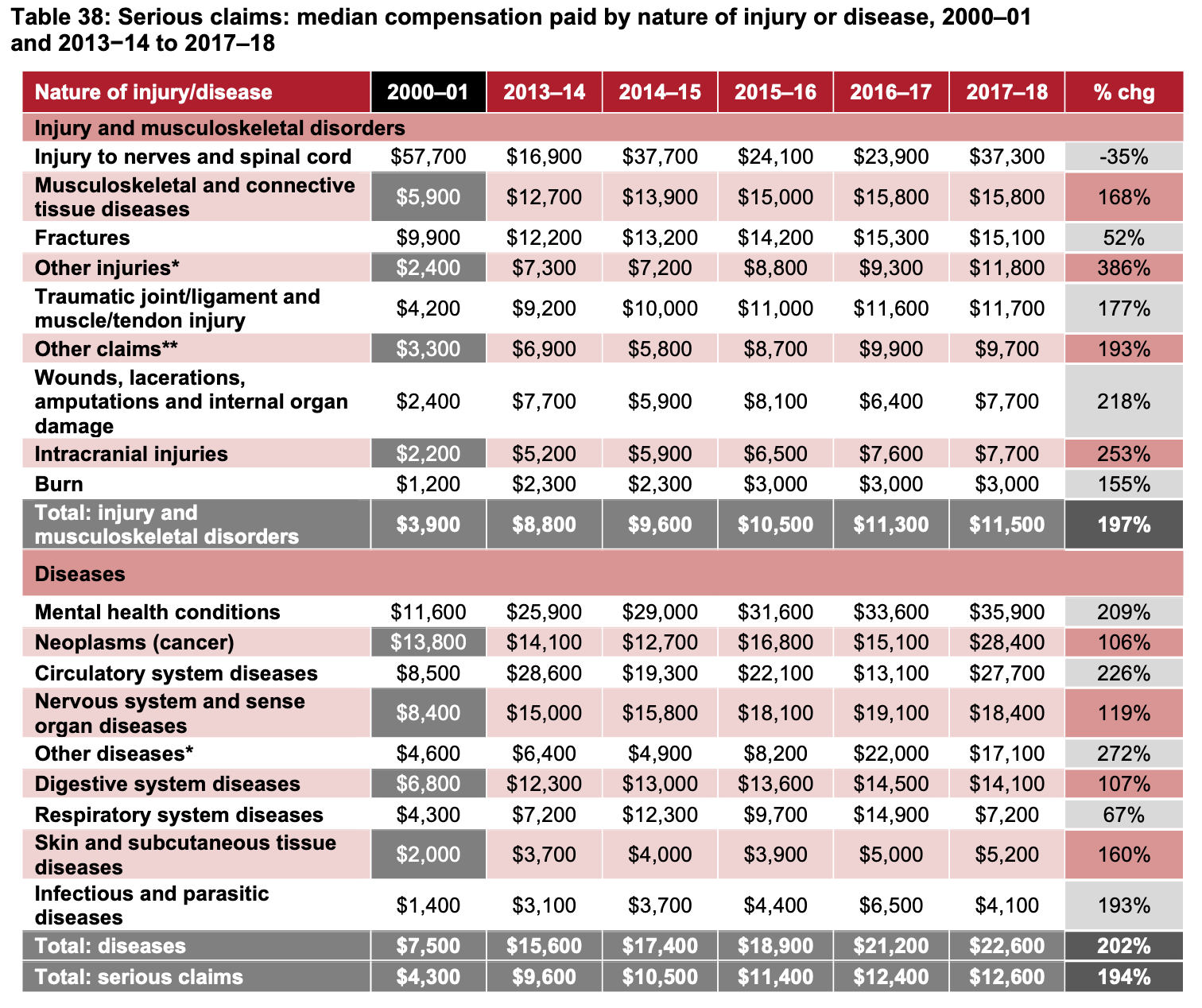The Australian Workers Compensation Report 2018-19 was released recently and it continues to report a trend we have seen across the last two decades in that mental health related workplace compensation claims continue to rise. Across the board, mental health claims are in the top two of increasing lost work time and cost.
This is not only bad for the injured employees, but bad for your business as well.
Some positive news is that overall serious claims have decreased by 17%. However, this makes it all the more concerning that when considering serious claims for mental health conditions, as the data presents an increase of 28%.
If you are unfamiliar with definitions of workers compensation claims, work related mental stress claims include work related bullying and harassment, which according to data released in early 2020, 15% of all mental stress claims. Other sub-categories of mental stress include work pressure, work related violence, traumatic event exposure, and other forms of harassment (eg. sexual or racial harassment).
Overall, mental health conditions do not comprise the highest proportion of serious claims. They rank in fifth position at 9% of all claims behind a range of physical injuries.
However, while they may be low in number, they are high in cost. Mental health conditions has the longest period of lost work time. This was 20.8 weeks, an increase of 86% since 2001. This compares to an average lost work time for Injury and musculoskeletal disorders of 5.8 weeks, and diseases (under which mental health conditions sits) with an average lost work time of 12.0 weeks.
In regards to compensation paid, mental health conditions have increased to an average of $35,900 per claim, an increase of 209% since 2000/01. This is second to nerve and spinal cord serious claims, which has in contrast declined by 35% since 2000/01.
Mental health conditions in the workplace are costly. However, cost needs to be more broadly considered than direct cost of the injury. These include insurance premiums, employee replacement costs (either temporary or permanent), replacement training, inability to service clients or customers while a team member down leading to lost revenue, if resulting from workplace bullying the lost productivity from a bullying being present, legal costs if a case is made, and so on.
Only through a concerted effort will this trend of increasing workplace mental health injuries be reduced. Creating mentally healthy workplaces needs to be at the forefront of your business operations to reduce the cost and the impact.
Contact us today for a confidential discussion on how we can help you create a mentally safe, bullying free workplace.


